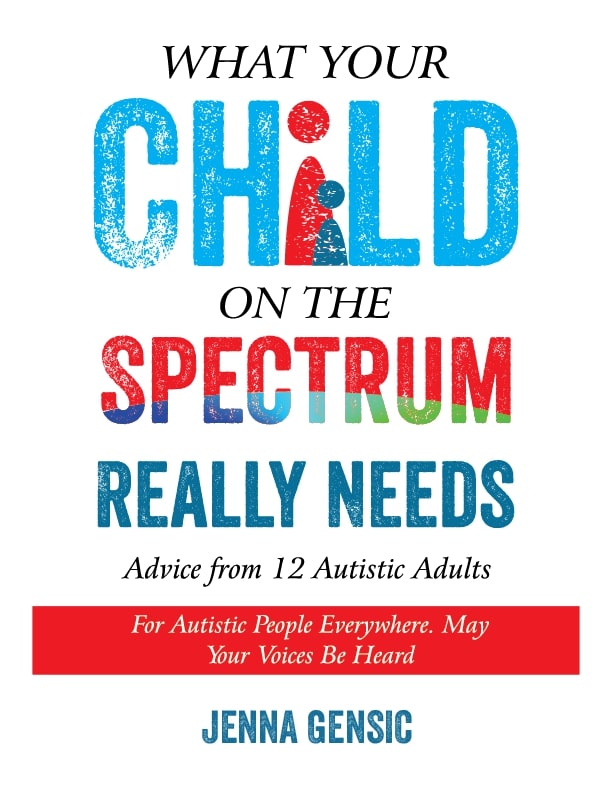Stories That Need To Be Told
I love listening to stories. The idea for this book came from my passion for storytelling and a special interest in the authority of personal experience. I studied the personal essay in graduate school and have continued using the transformative power of storytelling in a variety of different ways. My interest in autistic storytelling comes from living alongside my autistic brother and son.
When my son was diagnosed with autism at four, my husband and I sought the advice of every “expert” we were recommended to: doctors, therapists, psychologists, etc. But there was one problem with these professionals that left a big gap in our pursuit for the best support for our son–they weren’t autistic. I grew tired of the media stories about what I should or should not be doing as a parent of an autistic child. Avoid milk! Extra doses of vitamins! Try this really expensive supplement! Don’t eat broccoli in your first trimester! So…the broccoli reprimand I haven’t actually heard yet, but you get the idea. When I first started this project, I wanted to find out what autistic people thought of the overwhelming amount of therapy, behavioral, and diet advice out there. I soon realized this is where I should have started.
I began reaching out to the autistic community to solicit stories about what parents, family members, peers, therapists, or teachers did for or to them that helped or hurt their development. And their answers surprised me! The advice discussed here is easy-to-understand and immediately practical for parents of young children and autistic adults. Most contributors weren’t interested in the latest autism parenting best practices advertised in the media. Instead they emphasized how they wanted to be treated by society, and how neurotypicals often miss the mark. My interest in this disconnect has led to the creation of the Learn From Autistics website where I continually engage with the autistic community through this blog that has now published over 100 interviews.
The Contributors
I wanted the approach of this book to also underscore its main message: People on the spectrum are valuable and should lead the public conversation about autism. The topics addressed represent those the contributors identified as important to discuss. In this book, you’ll see a sample of autistic input from a variety of different personal and professional spaces. All of the contributors are verbal [in most situations]. Several are parents of autistic children. They are married, single, and have varied backgrounds and professions. They include writers, journalists, graduate students, international speakers, an IT professional, a stay-at-home mom, a hotel services employee, a stand-up comedian, a relationship coach, a data architect and analyst, and a Pulitzer-Prize-winning music critic. They are all interested in sharing their stories to help other autistic individuals and the families who love them.
Topics Addressed
Some of the topics they’ve chosen to discuss include:
- Redefining communication breakdowns
- Discovering and supporting your child’s agenda
- Sensory Processing Disorder
- Behavioral therapies
- Encouraging self-advocacy and autism acceptance
- The problem with hiding autism
- Pursuing meaningful friendships (for you and your child)
- Educational advocacy
- Autistic success in the workplace
This book is important because, in many ways, non-autistics haven’t prioritized the same agenda in their general autism support or advocacy efforts as individuals on the spectrum have. As an example, Australian stand-up comedian Jodie Van Wetering explains in this book, “Social skills are actually relatively low on the list of things I’d like addressed in order to have a happier and more productive life, but they’re the first (and usually only) thing therapists want to talk about.” I believe the more we welcome and engage with the autistic community, the closer society will become to advocating for what autistic people actually want, thus better meeting their needs.
Promoting Positive Autistic Identity
Each chapter contains reflection questions that prompt readers to think critically about their perceptions of autism and their autistic child in regards to the advice that each contributor discusses. I’m hoping readers gain a better understanding of the autistic condition so they can help the autistic children around them develop a positive autistic identity and respectfully support and improve the lives of the autistic adults throughout their lives. This book is an effort to support autistics whose voices are not acknowledged enough in the neurotypical world. I hope this book helps change the way you think about autism and your children, both young and old. Writing it has done so for me.
View on Amazon
View on Barnes and Noble
View on AAPC


Actually Autistic Blogs List
Jenna